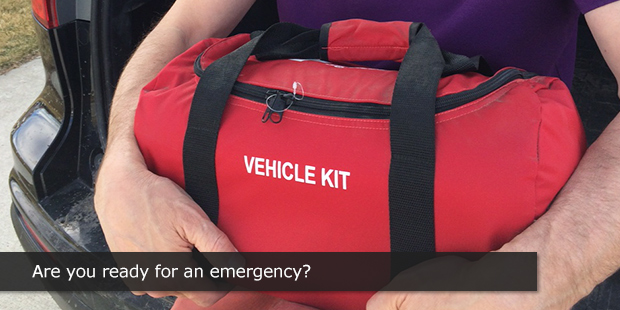Are You Ready for an Emergency?

Although some time has passed since the Slave Lake fire of 2011, the successful evacuation of its Healthcare Centre continues to be a reminder not only of the importance of having a plan – in this case one related to evacuation – but also of understanding and implementing the plan.
As the provincial E/DM on-call that week in May, I was part of the provincial on-call team that assisted (albeit from afar) the staff as they successfully evacuated 9 acute patients and 20 Long Term Care clients from the facility. The fact that nobody died or was even injured during the process was primarily because the site not only had an evacuation plan but that staff implemented it.
Whether it’s evacuating a health facility or your home – as was the case for thousands of Slave Lake residents – planning ahead can mean the difference between life and death or serious injury.
Emergency Preparedness Week is May 3 – 9, 2015, and is a time to check our emergency kits and ensure we know what to do when disaster strikes.
Here are some key tips to help you prepare:
1. Know the risks. Although the consequences of disasters can be similar, knowing the risks specific to you, your community and your region can help you better prepare.
2. Make a plan. It will help you and your family know what to do in case of an emergency. Make sure everyone knows the exits from your house or building, where to meet, and the responsibilities of each person.
3. Get an emergency kit. During an emergency, it’s very important to have basic (yet essential) supplies on hand. For example, you may need to get by without power or tap water. Your home should always be stocked so you can be self-sufficient for at least 72 hours.
Here are some resources that can help:
- Download our Personal and Family Disaster Preparedness Guide . This will help you develop your plan, make your emergency kits, and more.
- Follow @AHS_EmergAlert on Twitter—you can sign up for and have emergency alert notifications sent to you phone.
- Coping with stress after a disaster can affect your physical health. There are many things you can do to help recover http://bit.ly/ZosdRf
- Being emotionally prepared for a disaster or emergency can help you reduce your stress and anxiety http://bit.ly/12tkIq0
- Children and teens don’t react the same way to a disaster as adults. They may need special attention & extra support http://bit.ly/ZosaF2
- Review Government of Canada resources.
Have you faced an emergency? How were you (or were you not) prepared?










